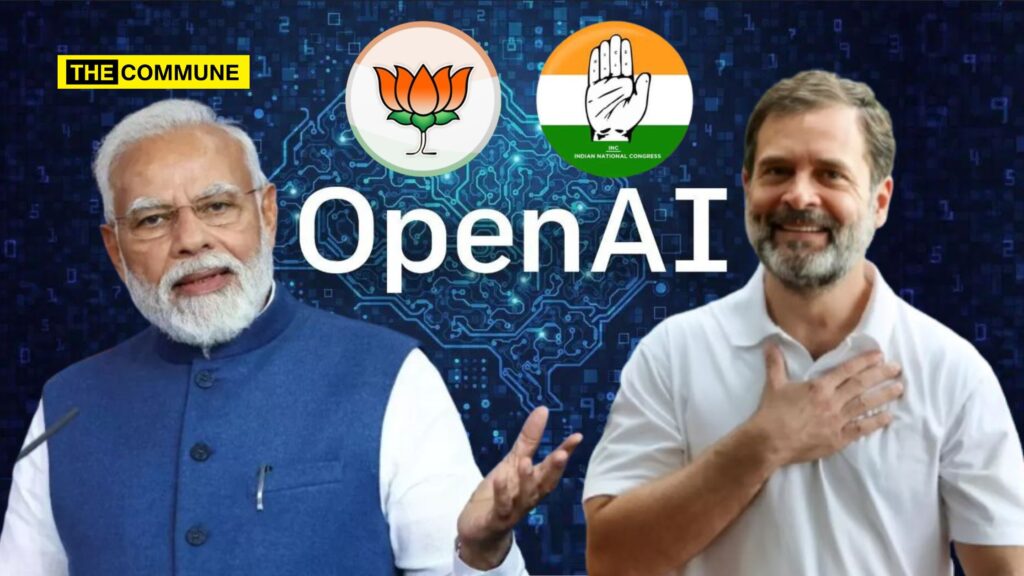OpenAI’s announced about a recent uncovering and dismantling of five covert influence operations originating from Russia, China, Iran, and Israel. These operations, which utilized AI, aimed to conduct campaigns such as anti-BJP and pro-Congress efforts. OpenAI detailed how these groups exploited its AI tools for disruptive activities, including generating content across multiple languages, creating fake personas, debugging codes, and translating text.
According to OpenAI, these operations targeted a range of issues, from geopolitical conflicts like the Russia-Ukraine and Israel-Hamas wars to political matters in various countries including India, Europe, and the US. Despite utilizing platforms like X, Facebook, Telegram, Medium, and Blogpost to disseminate content, OpenAI noted that these influence campaigns failed to significantly engage with the audience.
Specifically regarding the Indian General Elections, OpenAI identified an operation conducted by an Israeli political campaign management firm named STOIC, dubbed Zero Zeno. This operation aimed to spread anti-BJP and pro-Congress propaganda by generating articles and comments using OpenAI’s models, which were then distributed across platforms such as Instagram, Facebook, and X.
Furthermore, STOIC employed AI tools to disseminate content both supporting and opposing various entities such as Hamas, Qatar, Israel, BJP, and Histadrut, leading to conflicting narratives given BJP’s perceived stance on certain issues. Initially targeting audiences in Canada, the US, and Israel with content in English and Hebrew, Zero Zeno expanded its focus to India in May, using AI-generated content across platforms like Instagram, Facebook, and X.
Some accounts involved in posting these messages were identified by the Digital Forensic Research Lab of the Atlantic Council. The operation initially addressed issues such as the rise of radical Islam in Canada and accusations against American universities before shifting focus to Qatar, Israel, and eventually India.
OpenAI concluded that Zero Zeno generated content criticizing BJP while favoring the Congress party.
(Pic Credit: OpIndia)
The report also mentions that the operation utilized identical accounts to disseminate content across various topics. For instance, accounts initially focusing on issues like radical Islam or supporting Palestine protests in Canada and the US later shifted their focus to India or Israel.
Within the OpenAI report, certain tweets from the campaign are featured while preserving the anonymity of the accounts. However, those tweets which remain undeleted can still be identified through their textual content.
One of the accounts identified is under the name Ankur Mani, with the handle @ManiAnkura12515. A tweet dated 4th May, stating “No more support for BJP as long as Amith Malvia is involved,” is highlighted in the report. Upon a brief examination of the account, it becomes apparent that it predominantly shares and reshapes pro-Congress content on X.
(Pic Credit: OpIndia)
Another tweet originating from an apparent Indian account, mentioned in the report, comes from an account named Mohini Krishnamoothi. However, the tweet diverged from typical content, focusing instead on the development of applications using the MERN stack. According to OpenAI, this tweet was crafted to construct a persona. It marked the initial tweet at the start of May, coinciding with a shift towards targeting India. Following this, the account proceeded to share content related to Canada, including a repost of a tweet from United Citizens for Canada (@canada_ucc), identified as the primary Canada-centric account within the network by OpenAI. Subsequently, the group redirected its attention towards India. Additionally, some of the comments were posted as responses to notable figures, with no apparent connection to the original post.
Breaking: Open AI (creators of Chat GPT) have said that they have disrupted actions of an Israeli commercial company trying to influence Indian elections. They generated "comments that focused on India, criticized the ruling BJP party and praised the opposition Congress party". https://t.co/q7ZxK9jtQ3 pic.twitter.com/bFd7oKfNwk
— Sidhant Sibal (@sidhant) May 31, 2024
In its assessment of the impact, OpenAI suggests that Zero Zeno’s activities garnered minimal engagement, primarily originating from its own fraudulent accounts. It further notes that many of these accounts have been deactivated by Meta and X, potentially skewing current engagement metrics. Moreover, the report highlights that the campaign did not receive amplification from individuals outside the network.
(With Inputs From OpIndia)
Subscribe to our channels on Telegram, WhatsApp, and Instagram and get the best stories of the day delivered to you personally.

